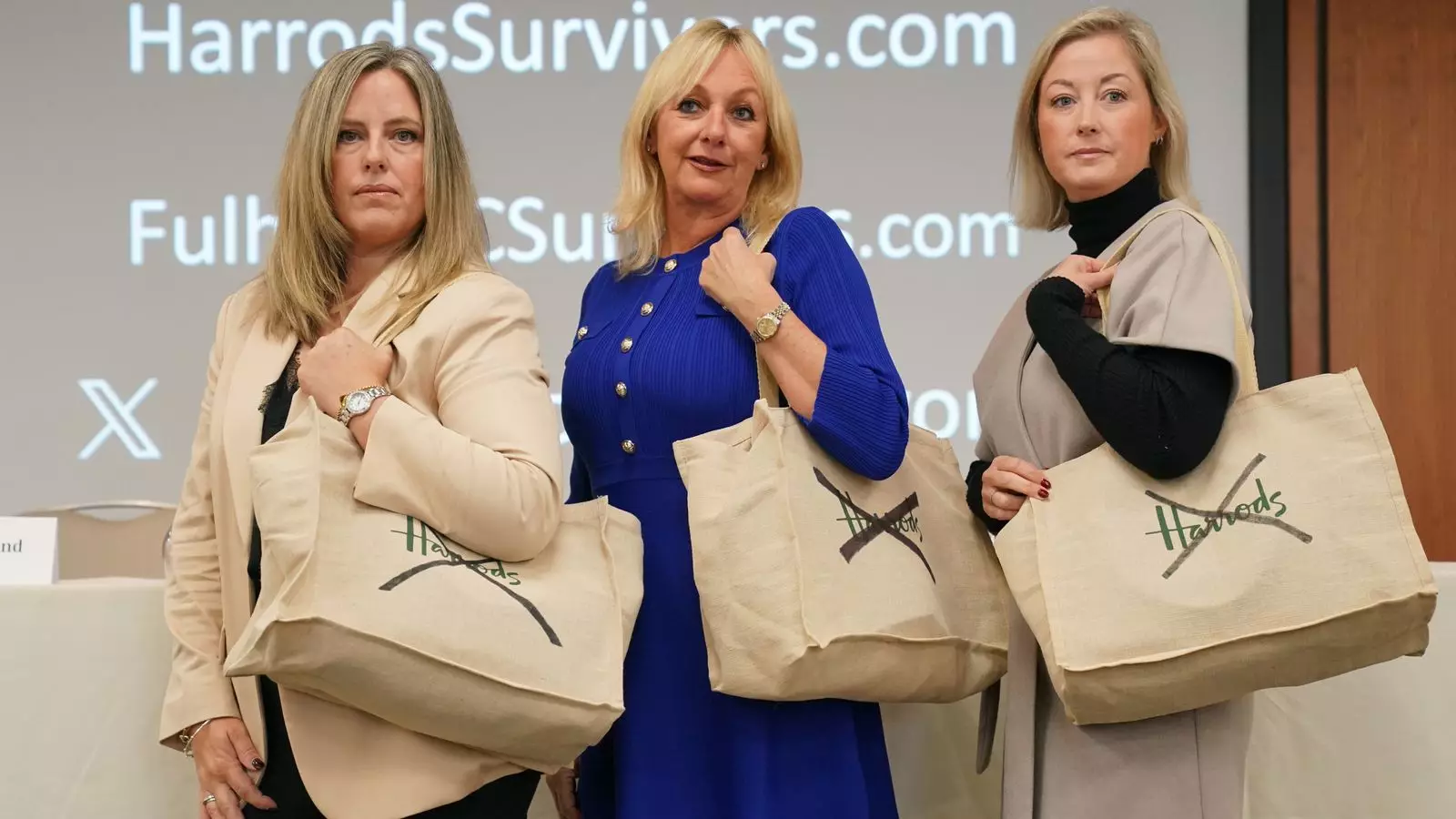In recent weeks, a distressing wave of allegations surrounding the late Mohamed al Fayed has resurfaced, with a collective known as the Justice for Harrods Survivors group receiving overtures from over 400 individuals. These contacts include both alleged victims and witnesses, indicating a deeply troubling narrative that extends beyond personal accounts into systemic issues tied to the businessman’s extensive influence over prominent British entities like Harrods and Fulham Football Club.
The revelations stem from a BBC documentary that delved into Fayed’s behavior, prompting a spectrum of accusations ranging from serial rape to sexual battery and abuse of minors. The gravity of these charges cannot be understated; they hint at a pattern of exploitation that seems to have pervaded various establishments and environments associated with Fayed. Highlighting the situation, legal representatives Dean Armstrong KC, Bruce Drummond, and Maria Mulla reported at a press conference in London that inquiries have been received about incidents not only at Harrods and Fulham FC but also from multiple locations where Fayed’s presence was felt.
In essence, the responses to these allegations reveal a widespread connective tissue—individuals from different sectors and backgrounds sharing similar harrowing experiences. The legalities surrounding such cases can be daunting, yet Mr. Armstrong’s announcement of the issuance of the formal letter of claim on behalf of one alleged victim signifies the beginning of what may unfold into extensive legal proceedings against various parties thought to be complicit in the culture of abuse.
The language used to describe the nature of the alleged crimes reflects an alarming trend. Mr. Drummond’s remarks suggest that the claims against Fayed’s behavior represent “an industrial scale of abuse.” Such terminology evokes the image of systemic neglect—an environment ripe for victimization which would require complicity at multiple levels. Notably, the survivors’ group has indicated that their inquiries extend beyond the UK, encompassing reports from individuals in the US, Canada, Australia, and across Europe. This widens the specter of Fayed’s influence, suggesting that the ramifications of his alleged actions could be felt globally.
The phrase “a system that enabled the abuse” speaks volumes about the critical need to scrutinize corporate and social infrastructures that allow predatory behavior to thrive unchecked. It raises pertinent questions about accountability—who bears the responsibility for these pervasive practices that survive in the shadows of reputable establishments?
Among those who have spoken out, the testimony of Bianca Gascoigne, daughter of footballer Paul Gascoigne, has garnered significant media attention. Her claims of grooming and subsequent assault during her teenage years while employed at Harrods cuts to the core of how vulnerable individuals can be exploited within such commercial environments. Similarly, former Fulham Women’s captain Ronnie Gibbons has shared unsettling accounts of her own experiences with Fayed, adding to a growing list of afflicted individuals.
The aggregation of these allegations—21 women having reported sex crimes to the Metropolitan Police between 2005 and 2023—paints a picture of a long-standing culture of silence. Each new account intertwines, revealing deeper layers of a narrative that implicates not just an individual, but potentially the societal and corporate machinations that allowed for such actions to persist.
The response from institutions involved, particularly Harrods, has been one of abhorrence, claiming to be “utterly appalled” by the allegations. They assert that the organization today is remarkably different from the one under Fayed’s control. However, such sentiments seem inadequate given the severity of the allegations. The mere declaration of horror cannot erase or mitigate the deep scars left on the lives of the victims.
As more victims come forward, the pressing need for change within organizational policies becomes apparent. A proactive stance on preventing abuse, creating transparent processes, and ensuring accountability across all levels of operation is necessary to heal and protect future generations from similar fates.
The unfolding narrative surrounding Mohamed al Fayed and the collective testimony of the alleged victims is a clarion call for a broader dialogue about accountability, empathy, and the ethical responsibilities of powerful individuals and the organizations they control. It underscores an urgent need for societal vigilance in safeguarding against exploitative practices within both corporate and social contexts.


Leave a Reply